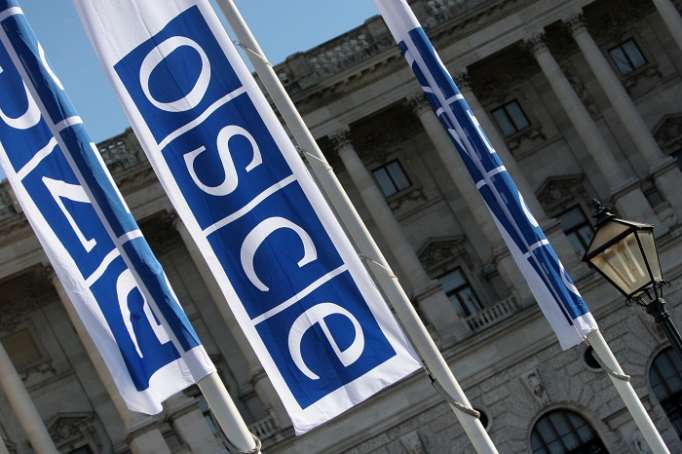In their March 1 statement, the Co-Chairs of the OSCE Minsk Group (Igor Popov of the Russian Federation, Stephane Visconti of France and Andrew Schofer of the US) welcomed the commitment of Azerbaijani President Ilham Aliyev and Armenian Prime Minister Nikol Pashinyan to meet soon under the auspices of the Co-Chairs, the OSCE website reported.
The Co-Chairs underline the importance of maintaining an environment conducive to productive discussions and continue to assess positively the recent lack of casualties on the front lines.
The Co-Chairs also welcome some initial steps being taken in the region to prepare the populations for peace and encourage the sides to intensify such efforts.
The Co-Chairs reiterate that a fair and lasting settlement must be based on the core principles of the Helsinki Final Act, including in particular the non-use or threat of force, territorial integrity, and the equal rights and self-determination of peoples.
“Any attempt to put some principles or elements over others would make it impossible to achieve a balanced solution,” reads the statement.
The Co-Chairs are prepared to meet with the leaders and foreign ministers of Armenia and Azerbaijan at any time, and call on the leaders to resume negotiations in good faith at the earliest opportunity.
Continuous and direct dialogue between Baku and Yerevan conducted under the auspices of the Co-Chairs remains an essential element in building confidence and advancing the peace process.
The Co-Chairs stress that they remain fully committed, in accordance with their mandate, to helping the sides find a peaceful solution to the Armenia-Azerbaijan Nagorno-Karabakh conflict.
The Co-Chairs also express their full support for the impartial and critical monitoring work undertaken by the Personal Representative of the OSCE Chairperson-in-Office and his team.
The conflict between the two South Caucasus countries began in 1988 when Armenia made territorial claims against Azerbaijan. As a result of the ensuing war, in 1992 Armenian armed forces occupied 20 percent of Azerbaijan, including the Nagorno-Karabakh region and seven surrounding districts.
The 1994 ceasefire agreement was followed by peace negotiations. Armenia has not yet implemented four UN Security Council resolutions on withdrawal of its armed forces from the Nagorno-Karabakh and the surrounding districts.
More about:
















































